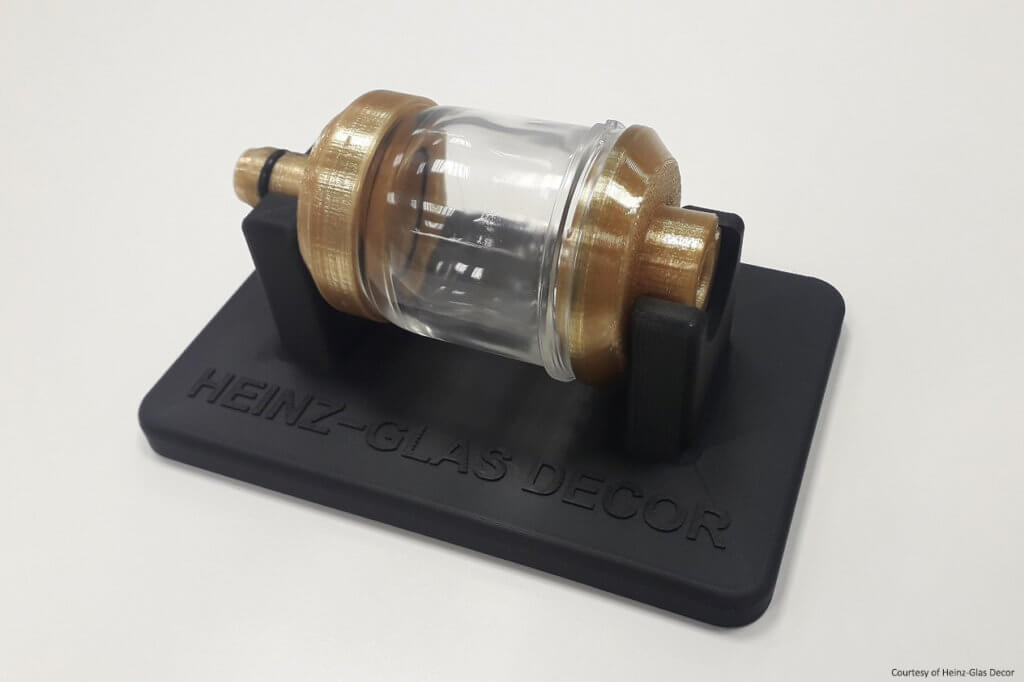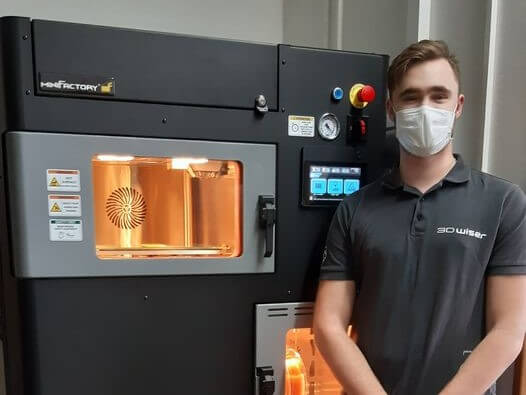Menu
close
Utilization of 3D printing can also be effectively integrated into long-term and traditional manufacturing processes. A good example of this is the Heinz-Glas Décor in the Czech Republic.
The Heinz family’s glassmaking tradition goes back to year 1523. That of the HEINZ-GLAS company dates back some 400 years to 1622. Today HEINZ-GLAS is one of the world’s leading manufacturers and finishers of glass flacons and caps for the perfume and cosmetics industry.
Heinz-Glas Décor is a highly specialized company engaged in the research and production of glass bottle printing and decoration. Their main customers are leading cosmetic and perfume manufacturers around the world.
The printing and decoration process for glass products requires different production jigs. Which always differ according to the geometry of the glass product. The requirements for the materials used in the jigs are extreme, as very high temperatures are used in the process. In addition to the high temperature, the material used in jigs must be able to withstand UV radiation, pressure and have good resistance to harsh chemicals.
On the production line, when switching between glass products, jigs must also be customized for each model. These jigs are usually also needed on a fast schedule. Traditionally, production jigs have been made by machining plastic, but the challenge here has been high manufacturing costs and long delivery times.

Heinz-Glas decor decided to invest in a miniFactory Ultra 3D printer to begin manufacturing custom production jigs utilizing high-performance polymers. The integration of 3D printing into serial production has accelerated the leading time of production jigs from days and weeks to minutes and hours. In addition, manufacturing costs have dropped by 50-70% compared to traditional manufacturing.
The material range of the miniFactory Ultra 3D printer is one of the widest on the market. This has been made possible by virtue of a print chamber that can be heated up to 250C and an open material system. As a result, material costs are significantly lower than with so-called closed systems. In which the customer can only use the printer manufacturer's own materials.
For this application, the company chose KIMYA PEI-1010 (based on Sabic ULTEM AM1010F) with an operating temperature of up to 200C. This material has an inherent flame resistance (UL94 V-0) and is also resistant to UV radiation. The durability of the 3D printed part in demanding conditions has proven to be excellent. As its service life can be measured in tens of thousands of decoration cycles.
The miniFactory Ultra was installed, and training provided, by our authorized reseller in the Czech Republic, 3Dwiser. Our authorized resellers are always well-trained. As proof of this, our resellers are certified by miniFactory for both in-depth user training and annual maintenance of the Ultra 3D printer. In this case, one and the same partner offers the customer all product lifecycle services. From installation to training, annual maintenance and technical support.

"*" indicates required fields